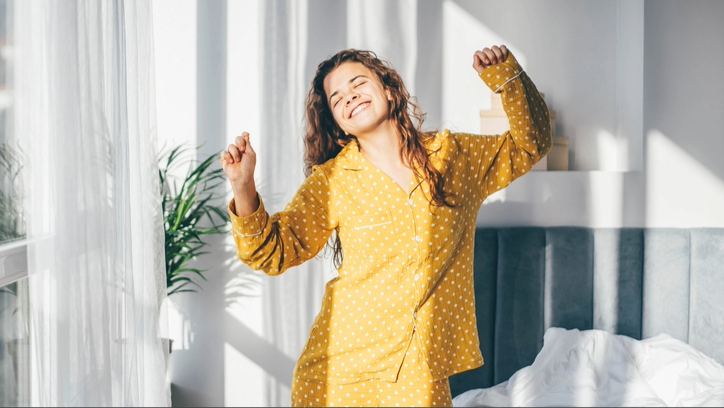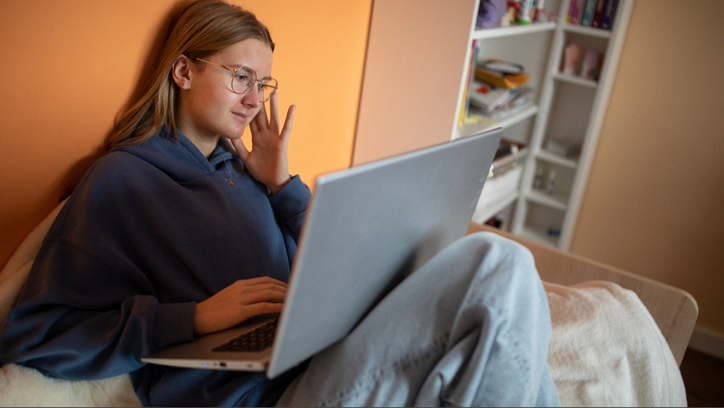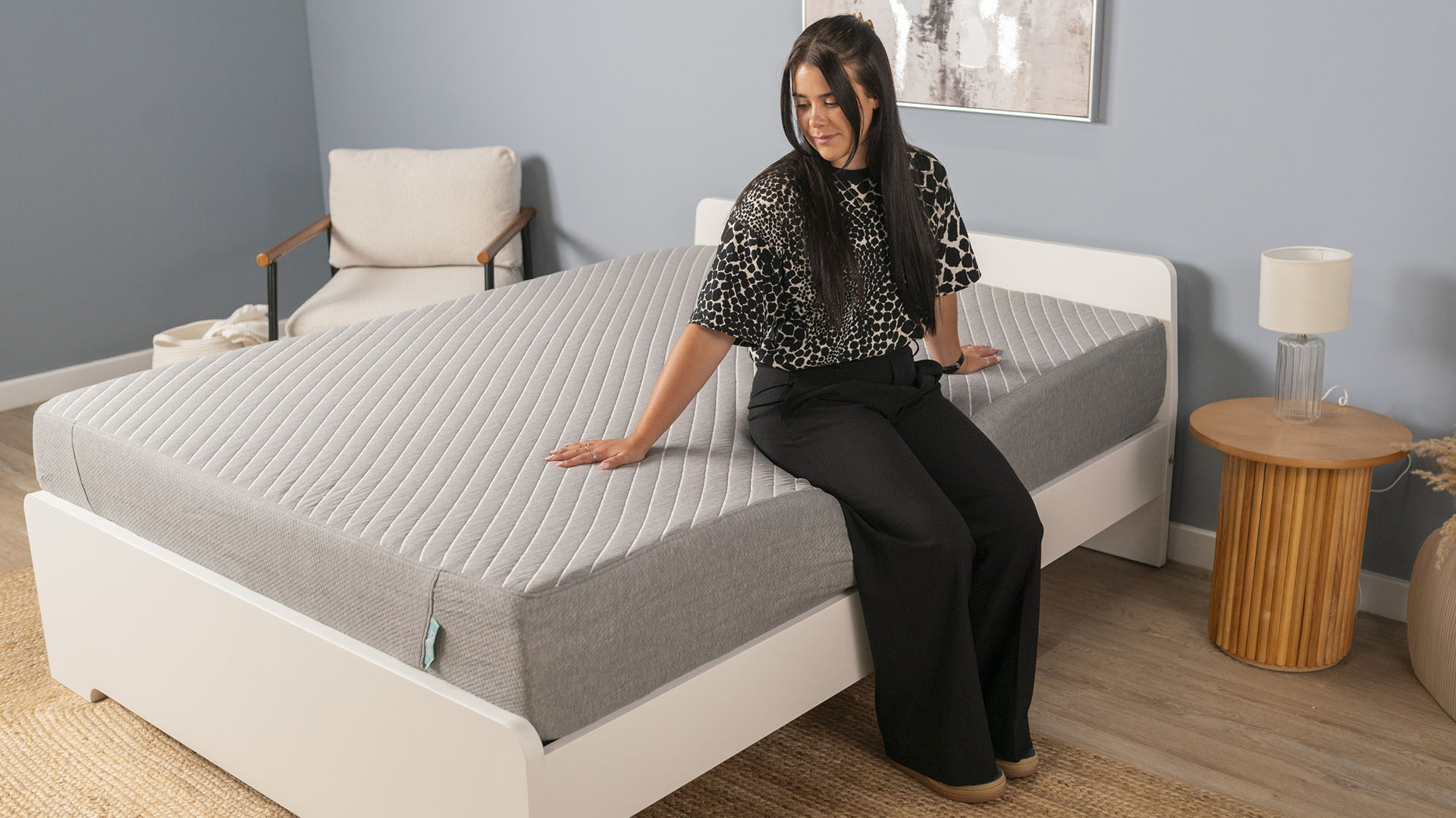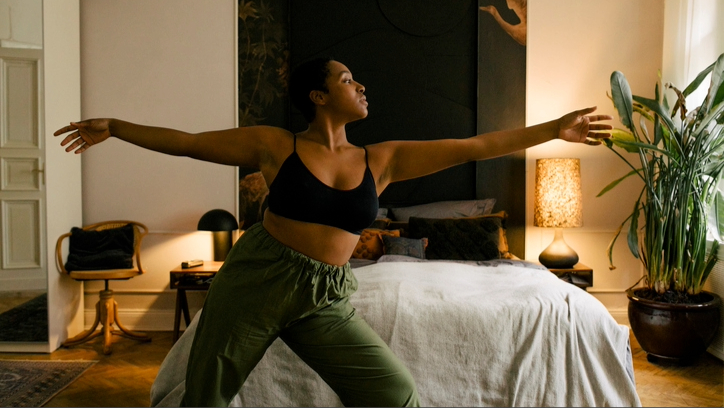Waking up at the same time every day helped me ace college — an expert explains why
Sleep experts explain why waking up at the same time every day is beneficial for both your sleep and studies

I'm a recent graduate-turned-sleep-writer and I can honestly say there's every chance I wouldn't have made it through my degree without a solid sleep schedule. I'm not someone who can function on minimal sleep and too many late nights can leave me unable to concentrate (and in a terrible mood.)
I'm a true morning lark, which often means I'm tucked up in bed by 9pm in order to get an early start. This sleep schedule suits my lifestyle now I'm working a full-time job, but during my university days there were times it was challenged.
However, I found maintaining my habit of waking up early, even after later nights, helped me to perform well at college, and improve my sleep overall.
Ahead, sleep medicine physician Dr. William Lu clarifies the benefits of waking up at the same time every day. Meanwhile, I've called upon certified sleep specialist and pediatrician Dr. Angela Holliday-Bell for her top tips around getting a good night's sleep at college.
Why is waking up at the same time every day important for your sleep?
Our bodies and brains tend to thrive on routine, particularly when it comes to sleep — we're designed to sleep and wake in line with natural cyles of light and dark.
So, unsurprisingly, the key benefits to waking up at the same time each day revolve around how we respond to routine. Specifically, doing so regulates your circadian rhythm so you're able to fall asleep fast at night and bag quality sleep.
Dr. Lu explains: "Waking up at the same time each day is recommended because it helps stabilize and synchronize your circadian rhythm, which is your body’s internal 24-hour clock that regulates sleep, hormones, digestion, body temperature, and more."
Get instant access to breaking news, the hottest reviews, great deals and helpful tips.

"Waking up at the same time every day also makes falling asleep easier as your body will be more attuned to feeling sleepy at a consistent time every day," he adds.
This means your body will release sleep-regulating hormones like melatonin when you need it (i.e. when you go to bed at night) and suppress it come morning when you need to get up and out the door feeling alert, which is particularly useful for early classes.
How waking up at the same time every day boosts cognitive function and helps you learn
The brain functions more efficiently with a regular sleep-wake cycle, which means improved memory and concentration — key ingredients for a strong academic performance.
Waking up at the same time each day helps regulate your circadian rhythm, which improves the quality of sleep you get. This in turn, can improve brain function leading to enhanced cognitive performance, better mood and reduced stress levels, standing you in good stead for acing your exams.
On the flip side, research has shown that students who have a sleep-wake cycle that was delayed, or who habitually don't allow themselves to get enough sleep because they have a late bedtime, see negative impacts on their health and studies.
A 2020 study involving over 1,000 university students in Japan found students with delayed sleep-wake phase (DSWP) or a combination of behaviorally induced insufficient sleep syndrome (BIISS) and DSWP, "were significantly associated with daytime dysfunction in school life, i.e. absence, tardiness, falling asleep during class and interference with academic achievement."

Similarly, a study conducted by American researchers 10 years previously, found insufficient sleep and irregular sleep-wake patterns were "present at alarming levels in the college student population" and associated with poorer physical and psychological health.
Ultimately, Dr. Holliday-Bell explains, good sleep "helps your brain store what you’ve learned, keeps your focus sharp and makes it easier to solve problems or think clearly during tests."
Should you wake up at your usual time even after a late night?
Surprisingly, experts generally recommend waking up at your usual time even after a late night.
Dr. Lu says: "This helps maintain your circadian rhythm and prevents disrupting your sleep cycle long-term. Your body can catch up on rest by increasing REM and/or deep sleep the night after a poor night of sleep."
Admittedly, sometimes I would take an afternoon nap to supplement the sleep I lost after a late night/early morning. What does Dr. Lu think of this?
He says: "Waking up early to maintain a consistent wake-up time and then taking a nap later in the day can be a helpful compromise if you're short on sleep. This approach allows you to preserve your circadian rhythm while still giving your body a chance to recover."
However, he warns: "Naps should be kept short (ideally 20–30 minutes) and not too late in the day, or they may interfere with your ability to fall asleep at night."
4 expert-approved tips for sleeping well at college
While waking up at the same time each day worked for me, there are other college-related sleep problems you may need to fix. Here’s advice from the experts…
1. Invest in the right sleep tech

My Tom's Guide colleagues and I relied on a handful of products to snooze well through college.
Sleep features editor Lauren Jefferies says "earplugs saved me," while senior sleep writer Ruth Jones says: "Once I started using an eye mask, I could block out my nocturnal housemates and actually get some sleep at night."
In short, a reliable sleep masks (this MyHalos mask at Amazon is a great choice) and earplugs (we particularly love the Loop Quiet 2 earplugs at Amazon) can be lifesavers in noisy, light-polluted college dorm environments.
What's more, a supportive but affordable mattress, like those in our best cheap mattress guide, will help you snooze comfortably through the semester, bagging those all-important, brain-boosting ZZZs.
2. Give yourself time to wind down

Between school work, social events and extra curricular activities, college life can become hectic, meaning less down-time.
But Dr. Holliday-Bell recommends: "Try to finish schoolwork and social activities at least 30 to 60 minutes before bed to give your brain time to wind down."
What should you do after closing your laptop at bedtime? Dr. Holliday-Bell says: "Building a short wind-down routine, even just 10 to 15 minutes of reading or stretching before bed, can help your brain switch into rest mode," so you can fall asleep quickly.
3. Be disciplined with your caffeine

If you're anything like me, a large chunk of your student loan will be spent on overpriced flat whites and iced lattes for powering through long study sessions. But unfortunately, the lingering effects of caffeine can wreak havoc on your sleep.
Caffeine has a half-life, meaning it takes your body typically takes a number of hours to eliminate just half the caffeine you've consumed — with estimates ranging anywhere between 2 and 12 hours. As caffeine blocks the effects of adenosine, a chemical in your brain that promotes sleepiness, it's important to avoid it later in the day.
Having your last caffeine fix around eight hours before bedtime is generally advised by experts, so you'll have to wave goodbye to nighttime coffee-fixes to welcome quality sleep at college.
4. Take walk breaks

Being cooped up in a library studying all day can have a negative impact on your circadian rhythm and sleep quality because you're likely not getting enough sunlight exposure and as a result, you're also sacrificing vitamin D.
Getting out and moving in fresh air has multiple sleep benefits. Exposing yourself to natural daylight signals your brain to release alertness hormones like cortisol and dopamine which can bolster alertness and attention, and alleviate fatigue.
Meanwhile, getting ample vitamin D (which is produced by the body when sunlight is absorbed via the skin) is associated with better sleep health and, deficiencies in it have been linked to sleep disorders including sleep apnea.

Eve is a sleep tech product tester and writer at Tom's Guide, covering everything from smart beds and sleep trackers, to sleep earbuds and sunrise alarm clocks. Eve is a PPA-accredited journalist with an MA in Magazine Journalism, and has four years’ experience writing features and news. In her role as Sleep Tech Product Tester and Writer for Tom's Guide, Eve is constantly trying out and reviewing the latest sleep products from brands such as Apple, Garmin, Whoop, Hatch, Sleep Number, Eight Sleep, and Oura. A fitness enthusiast who completed the London Marathon earlier this year, Eve loves exploring the relationship between good sleep, overall health, and physical performance, and how great sleep tech can make that relationship even better.
You must confirm your public display name before commenting
Please logout and then login again, you will then be prompted to enter your display name.
 Club Benefits
Club Benefits





